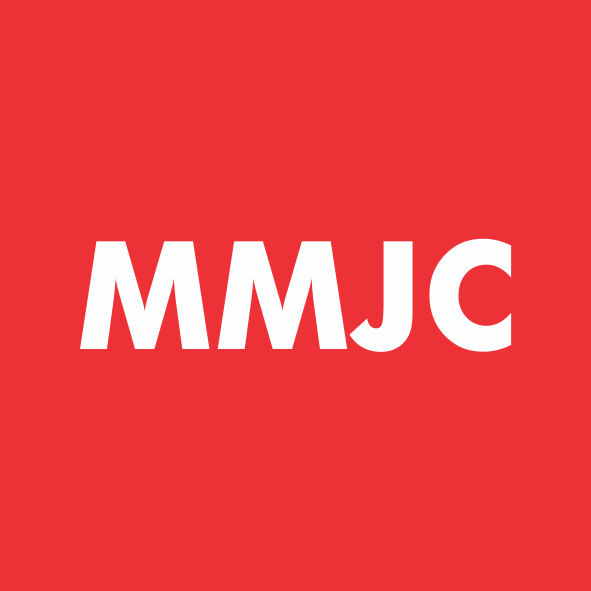- Home
- Knowledge Hub
- IPO Eligibility Criteria: What Companies, Promoters, and Directors Must Know

IPO Eligibility Criteria: What Companies, Promoters, and Directors Must Know - MMJC
Introduction
In India, the process of launching an Initial Public Offering (IPO) on main board of a recognised stock exchange is a significant milestone for any company looking to raise capital from the public. However, before a company, its promoters, or directors can embark on this journey, they must meet several stringent eligibility criteria set by regulatory bodies such as the Securities and Exchange Board of India (SEBI).
These criteria ensure that only companies with sound financial standing and good governance practices are allowed to access public markets, thus protecting investor interests. This article explores the key eligibility requirements for the company, its promoters, and its directors, shedding light on the standards that must be met and preparedness prior to successfully launch an IPO in India.
Eligibility Requirements
The eligibility requirements for company, promotor, and its directors[1] are stated in the Securities and Exchange Board of India (Issue of Capital and Disclosure Requirements) Regulations 2018, (SEBI ICDR Regulations)
.
Eligibility Criteria for Issuer Company
A company must meet several financial and regulatory conditions before launching the IPO. By taking these criteria into consideration companies should prepare for IPO well before to avoid last minute hassle to comply and smooth IPO launch.
| Sr. No. | Criteria | Details |
| 1 | Net Tangible Assets | A company can proceed with an Initial Public Offering (IPO) only if it meets certain financial requirements. One key condition is that the company must have net tangible assets—essentially, all its physical assets minus liabilities and intangible assets—of at least rupees three crore for each of the last three years. These financial figures must be reported on a restated and consolidated basis, meaning they should be adjusted for accuracy and include the financials of any subsidiaries to present a clear overall picture. Additionally, no more than fifty percent of these assets should be held in cash or other monetary forms unless they are specifically allocated for business expansion. However, this fifty percent restriction does not apply if the IPO is being conducted through an offer for sale (OFS), where existing shareholders sell their shares instead of the company issuing new ones. |
| 2 | Operating Profit | The company must have an average operating profit of at least rupees fifteen crore over the last three years, with profits recorded in each of those years. |
| 3 | Net Worth | A company must have a net worth of at least rupees one crore in each of the last three years, calculated on a restated and consolidated basis. Net worth refers to the total value of the company’s paid-up share capital, along with reserves generated from profits and the securities premium account. It also includes the profit or loss balance from the company’s financial statements. |
| 4 | Name Change Requirements | If the company has changed its name within the last year, at least fifty percent of its revenue in the preceding year (i.e., the full financial year immediately before the date of filing the Draft Red Herring Prospectus) must come from activities related to its new name. |
| 5 | No Convertible Securities | The company must not have any outstanding convertible securities or other instruments entitling any person to equity shares, except in specific cases like employee stock options or securities convertible before filing the drat red herring prospectus. |
SEBI ICDR further provides that in case a company is planning for an IPO it shall meet the above referred criteria. If in case a company fails to meet the above referred criteria then it may be permitted to go ahead with an IPO but in that case the company proposing will have to allot atleast seventy five percent of net offer of shares to qualified institutional buyers.
Eligibility Criteria for promoters and directors of the issuer company
Promoters play a significant role in the company’s IPO. Hence SEBI has set specific conditions for their participation. They are as follows:
| Sr. No. | Criteria | Details |
| 1 | Debarment Status | Any of the promoter, promoter group, directors or selling shareholders (in case a company is bringing an IPO by way of offer for sale) of the issuer company should not be or have been debarred from accessing capital market by the SEBI. If any of the above person is debarred in the past by the Board (SEBI) but the debarment period is over as on the date of filing of the draft offer document; the issuer company may proceed for the IPO[2]. |
| 2 | No link to debarred companies | If any of the promoters or directors is associated with another company debarred from accessing the capital market, the company becomes ineligible. For Example: Suppose XYZ Ltd. plans to launch an IPO, and one of its promoters, Mr. A, is also a promoter in another company, ABC Ltd. If SEBI had earlier barred ABC Ltd. from raising funds from the public, XYZ Ltd. would also be ineligible to proceed with its IPO unless Mr. A steps down from his role or is removed as a promoter or director. |
| 3 | Wilful Defaulter | Any of the promoters or the directors of the company should not be a wilful defaulter or a fraudulent borrower or the company is not permitted to issue an offer. According to Master Circular on wilful defaulters by RBI[3] a wilful defaulter is a unit defaulted in meeting its payment/ repayment obligations to the lender even if it has capacity to honour the said obligations or has not utilised the finance from the lender for the specific purposes for which finance was availed of but has diverted the funds for other purposes or has siphoned off the funds or has also disposed off or removed the movable fixed assets or immovable property given by him or it for the purpose of securing a term loan without the knowledge of the bank/lender. |
| 4 | Fugitive Economic Offender | Any promoter or the director of the company should not be a fugitive economic offender. Fugitive economic offender means any individual against whom a warrant for arrest in relation to a scheduled offence has been issued by any court in India, who: (i) leaves or has left India so as to avoid criminal prosecution; or (ii) refuses to return to India to face criminal prosecution.[4] |
| 5 | SR (Superior Rights) Shareholders | If a promoter holds SR equity shares, they should comply with: A net worth of less than ₹1,000 crore.SR shares must be issued only to executive promoters and approved via a special shareholder resolution.SR shares must be held for at least three months before filing the red herring prospectus.SR shares should have voting rights between 2:1 and 10:1 compared to ordinary shares. |
Conclusion
To ensure a smooth and successful IPO, the issuing company must comply with various regulatory requirements. Based on the above referred criteria, companies need to maintain and present their financial records according to these requirements for the three years leading up to the IPO. This means they should start preparing to meet these standards at least three years before the IPO is launched. The key is to plan ahead, engage experienced professionals, and start meeting these requirements well in advance. A proactive approach helps avoid last-minute hurdles, builds investor confidence, and enhances the company’s credibility.
[1] Regulation 5, Regulation 6 of SEBI ICDR Regulations, 2018.
[2] Explanation of Regulation 5 of SEBI ICDR Regulations, 2018.
[3] https://www.rbi.org.in/commonman/English/scripts/Notification.aspx?Id=1458#21
[4]https://dea.gov.in/sites/default/files/Draft%20Fugitive%20Economic%20Offenders%20Bill%2C%202017-22.3.2017.pdf
This article has been published on Taxmann. The link for the same
